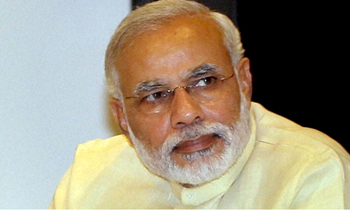New Delhi, Oct 7: A young man here is seeking Prime Minister Narendra Modi's intervention after the railways denied him a job although he secured 96 percent in a recruitment exam.

When the results came out, he was declared not selected. Convinced that something was wrong, he chose to file a query under the Right to Information (RTI) Act.
After a year, he got a reply that his candidature was cancelled by the Railway Recruitment Cell (RRC) because it was felt that he could have scored 96 percent marks, way above the cut-off mark, only by using unfair means.
Not satisfied with the response, Lalit kept going to the Central Public Information Officer (CPIO) in the Northern Railway office at Baroda House here.
Seeing his persistence, officials told him to file an appeal with the Central Information Commission (CIC).
"I filed my appeals with the First Appellate Authority (FAA) and CIC," Lalit said.
Finally, in July 2015, CIC fixed the appeal for hearing though the FAA didn't respond.
On August 10, the CIC asked the CPIO, which alleged that Lalit used unfair means in the examination, to provide the reasons to Lalit within 30 days explaining why he was not selected.
"They didn't have any proof or evidence that I was involved in cheating or used unfair means. I challenge them to prove it," says Lalit.
Lalit is now pursuing Bachelor of Social Work at the Indira Gandhi National Open University here.
He also works for the Delhi Transport Corporation as a conductor to support his family.
"I come from a poor family. My father needs constant care as he is bedridden with paralysis. The result of the exam meant a lot to me and my family," he told IANS.
Lalit has now written to the Prime Minister's Office, seeking justice.
"This is my last resort. All I want is a fair probe and justice," he said.





Comments
Add new comment